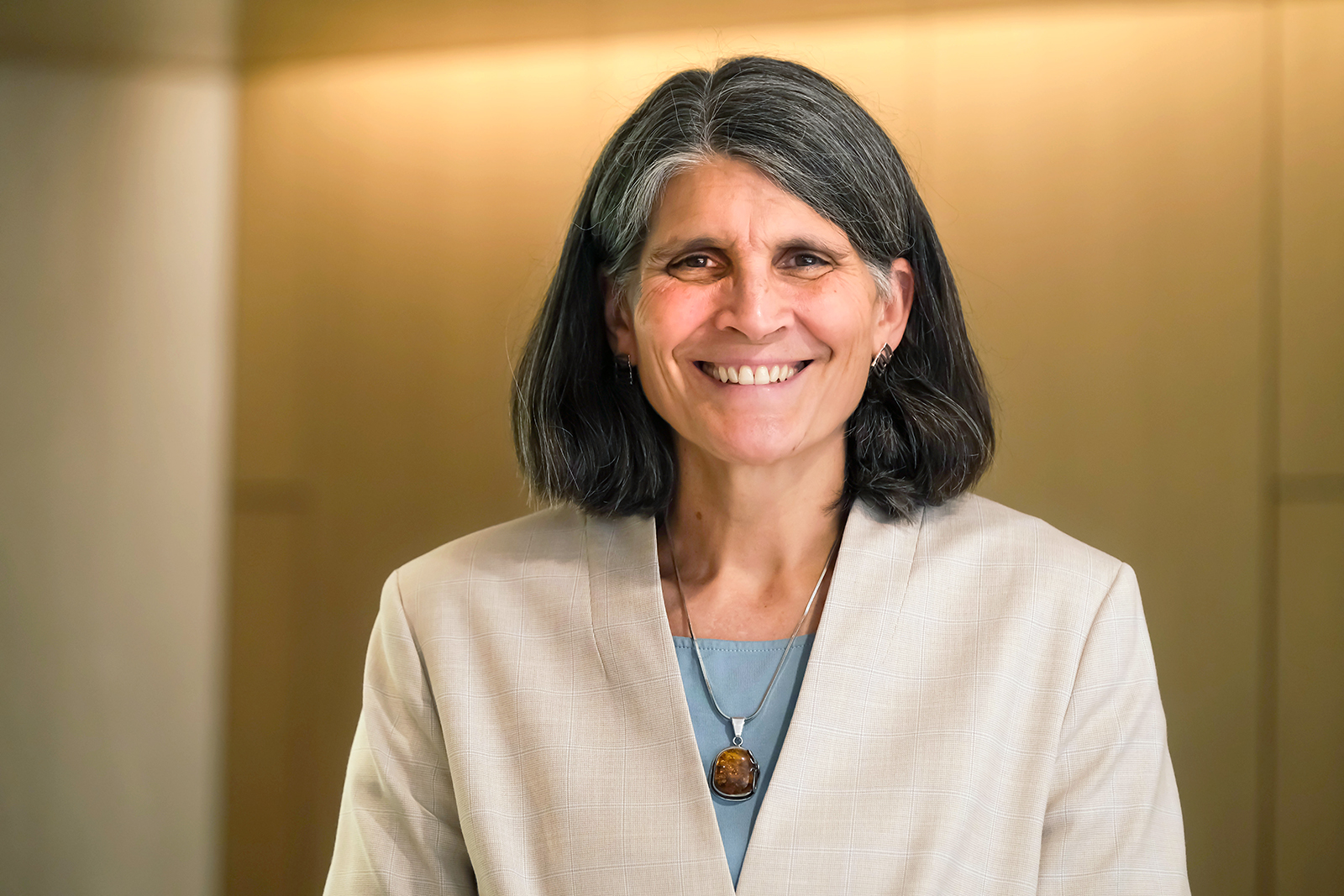As students return to the University of North Carolina at Chapel Hill for the 2025-26 academic year, Jill V. Hamm, Ph.D., also begins her first full year as dean of the UNC School of Education.
Chancellor Lee H. Roberts announced Hamm as dean of the School on April 25, 2025, at the final campus-wide faculty meeting of the 2024-25 academic year. Hamm had served as the School’s interim dean since May 15, 2024.
Since being named dean, Hamm has presided over her first graduation ceremony and started progress on her vision for the School, which includes advancing a process to update the School’s strategic framework.
During her interim tenure and in her first months as dean, Hamm has also continued to build collaborative relationships within the School of Education and with schools and units across the Carolina campus to strengthen community partnerships, advance teaching and research, and increase engagement and development efforts.
Hamm, William C. Friday Distinguished Professor of Education, has served as a faculty member in applied developmental science at Carolina since 1999. Before becoming dean of the School, Hamm was the inaugural associate dean for research and faculty development from 2017 to 2024. In that role, she led in the development and implementation of the School’s strategic plan and helped grow the School’s annual research expenditures from $6.2 million in 2016 to $25 million in 2024 — greatly expanding the School’s ability to serve people and communities in North Carolina and beyond.
In the following Q&A, she talks about her Carolina journey, what her time as dean has included so far, and where she sees the School going next.
You arrived at Carolina in 1999. What brought you here? And what’s kept you here?
I came just before the current millennium, at a time when the UNC OneCard was an actual card! You didn’t have it on your phone.
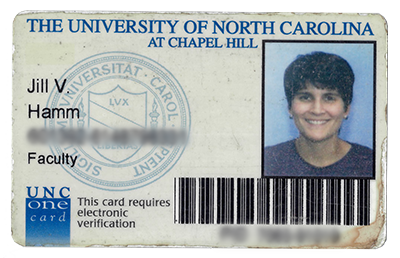
Right now, I am the senior-most faculty member in the School, and this academic year is my 27th here. I started as an assistant professor and went through all the ranks to reach distinguished professor. I’ve seen the School through four permanent deans and four interims, including myself.
I came to UNC-Chapel Hill, first and foremost, because of its status as an R1 university. Carolina has a vibrant community of scholars who are collaborative and collegial, and they’re all focused on the greater good – of North Carolina, the nation, and the world. As a young scholar starting a career as a developmental and educational psychologist, I was excited to join the School of Education because I knew I would have great colleagues. Before I accepted the offer, I visited an area classroom with two future colleagues, Carol Malloy, a math educator, and Judith Meece, a fellow educational psychologist. The three of us observed a high school math classroom in Durham and talked about how we interpreted different classroom events, like the teacher’s instruction and students’ engagement with the teacher and each other. I was so excited by that conversation, and after other meetings with faculty, I decided Carolina was for me. In fact, that conversation with Carol and Judith formed the basis of a National Science Foundation grant the three of us received in 2001 to study middle school math classrooms and student achievement from instructional, motivational, and social lenses.
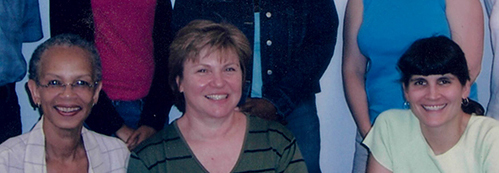
I’ve stayed at Carolina because the School continued to provide great opportunities for research collaborations with faculty colleagues and fantastic students to work with. On the research side, I’ve continued to lead and engage with research teams, securing funding to help students in rural schools and communities across the U.S. and specifically in North Carolina. I led one of the research projects within the first rural center ever funded by the U.S. Department of Education’s Institute for Educational Sciences. In recent projects, I’ve pursued my research interests in collaboration with Morehead Planetarium and Science Center, as well as a private company in the area. I also collaborate on a project with a colleague at the UNC Frank Porter Graham Child Development Institute. Research collaborations like these have enabled me to broaden the scope of my work and have a greater impact on educators and learners.
As a faculty member, I’ve taught exceptional students in both teacher education and our doctoral program. For my first 15 years here, I taught nearly every semester in either the secondary Master of Arts in Teaching or middle grades licensure programs. I taught in the School’s Human Development and Family Science program when it was first getting started. I’ve also mentored a dozen students to completion of their doctorates, served on more student committees than I trust myself to count, and mentored multiple post-doctoral fellows. So, our students are another big reason I’ve stayed at Carolina. We have a long history of preparing really exceptional professionals who themselves become university faculty or go into classrooms, schools, districts, nonprofits, companies, and more. I’ve loved seeing how the School’s program offerings have continued to broaden the role education can, does, and should play in our world.
As an administrator, I’ve had opportunities to work with colleagues who are equal parts visionary and hardworking. From leadership to faculty to staff to students, so many people have worked very hard to make this the school that it is today. I want to continue that upward trajectory.
You’ve been dean since late April. What has the summer looked like for you and the School?
One of my first major acts as a sitting dean was presiding over the graduation ceremony for the School’s class of 2025. Talk about starting things off on a high note! Graduation is such a remarkable celebration and a reminder of why we do what we do, which is to prepare educators, scholars, innovators, leaders, and professionals who will create immediate impact in whatever professional setting they find themselves. Looking out at those graduates and seeing their energy energized me!
After graduation, our people have kept doing the work. Our educator preparation programs have welcomed new cohorts. We’ve been planning events so I can meet with our alumni. We’re planning to launch an effort to update our strategic framework.
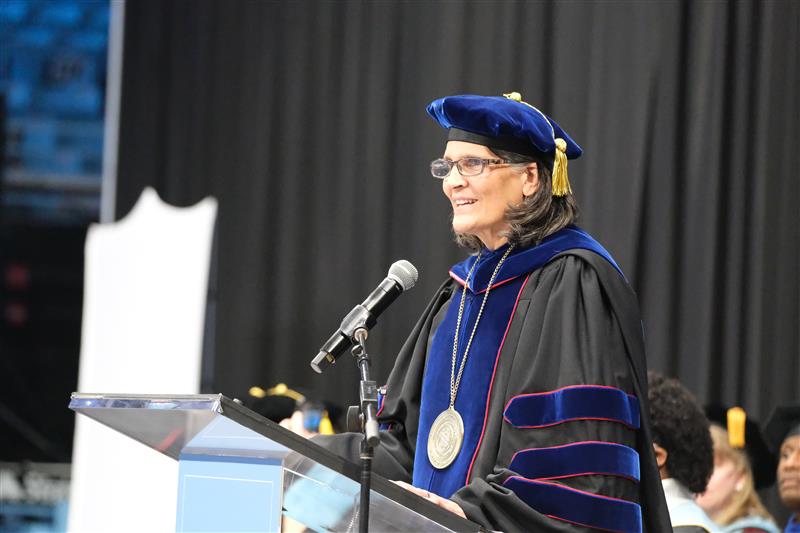
We’ve been playing close attention to federal funding changes, especially for research. That funding is really important to research universities like UNC and to the School. We’ve significantly increased our share of external funding over the past 10 years, growing our research expenditures to $25 million this past year. That money supports advances to theory and practice, helps prepare effective educators and the next generation of great researchers, and more. In many of those projects, that funding has enabled us to serve high-needs schools in North Carolina. Changes to the federal funding landscape certainly makes things more challenging.
We’ve been pursuing and will continue to pursue new strategies and funding opportunities to maintain our faculty’s and students’ great work.
As dean, my work is and will be challenging, but I intend to make sure the School remains a place that trains the highest-quality professionals who go on to serve the greater good, especially North Carolina’s educators and students.
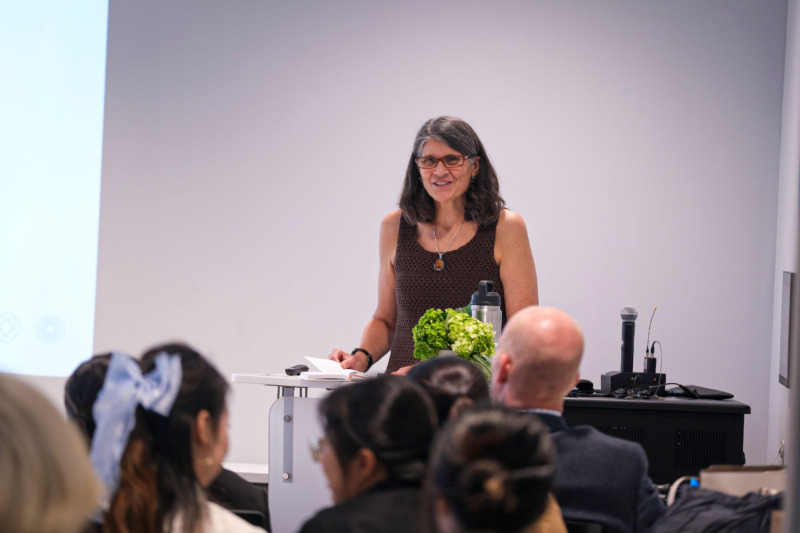
Can you share what the strategic framework or your vision for the School looks like?
I don’t want to get ahead of that strategic planning process, but I will say that we are heading into this next framework with a great foundation from our previous one. We have a lot of data and successes that we will reflect on.
For years, we’ve recognized the importance of emergent technologies, and now those include GenAI. Clearly, GenAI offers both challenges and opportunities for education. Educators need to be AI literate and understand and capitalize on its implications for instruction, assessment, and student learning. We have expertise in the School that can benefit the UNC-Chapel Hill campus and K-12 spaces.
Another area in which we have really great potential is in putting research into practice. We’re a school with incredible research strength — in student well-being, literacy, learning sciences and analytics, policy, implementation and improvement science, teaching, human development, special education, research methodology, and more. That research really sets us apart in this state. Implementing research can be difficult for a variety of reasons, but I want to remove barriers to bring our research findings to help schools across North Carolina and beyond. We do a great job of collaborating already and can realize even more impact for our school and district collaborators.
Our work at Carolina Community Academy and in Person County is one great example of how a public R1 university can and should serve a community. I want us to continue to learn from our lab school and share those lessons with our university peers and with school districts.
The School of Education and our work — both research and educator preparation — will always be of value to North Carolina. Our research will continue to address the most pressing challenges in education. Our graduates and alumni are educating and serving North Carolina citizens and preparing the next generation of our state’s workforce. And I’m excited and honored to lead this School and its work.
